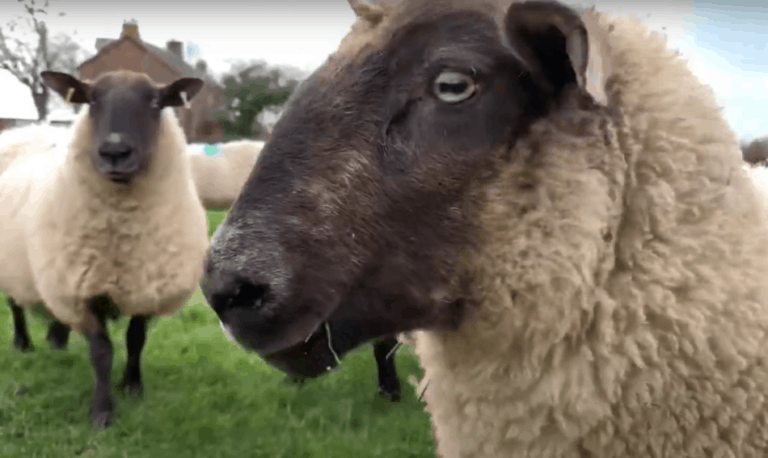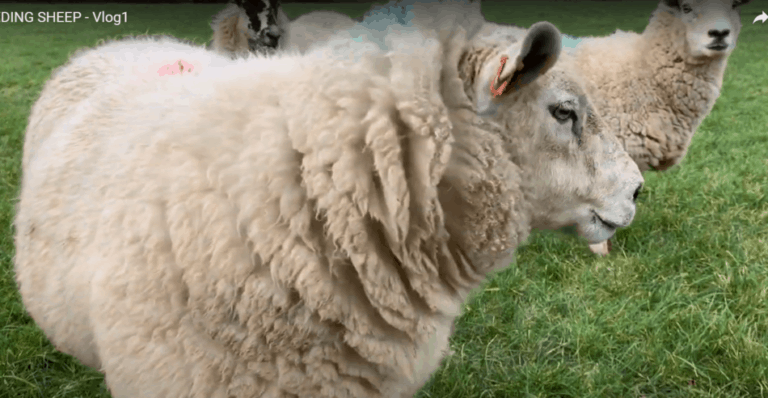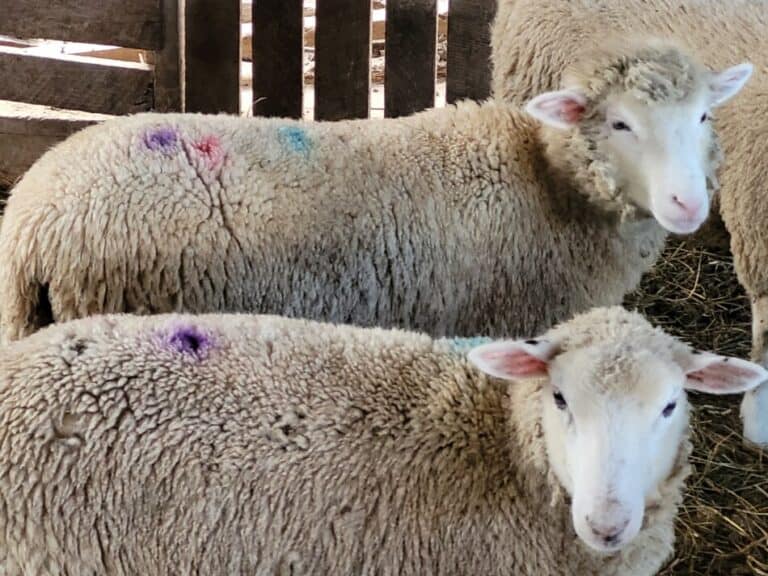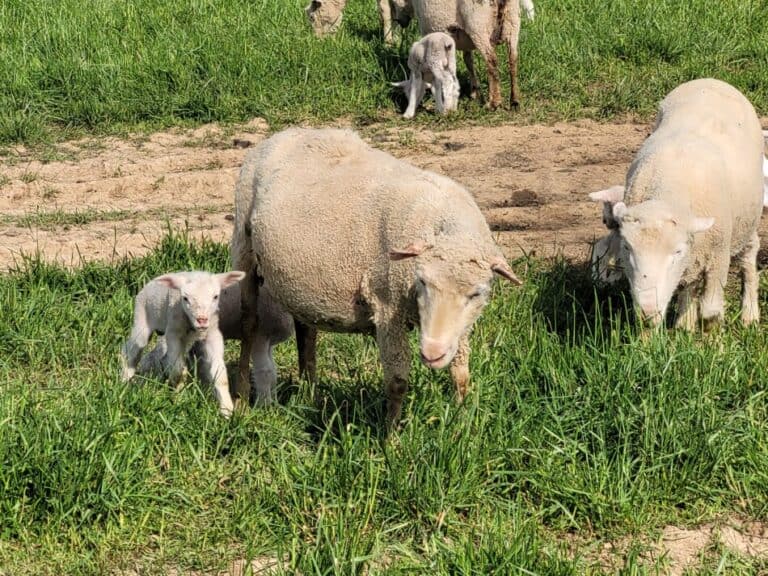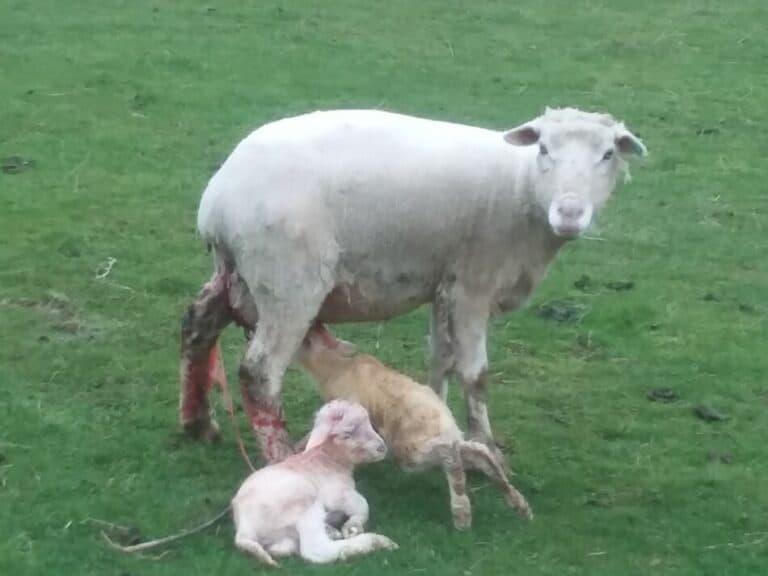Why Do Ewes Steal Lambs?
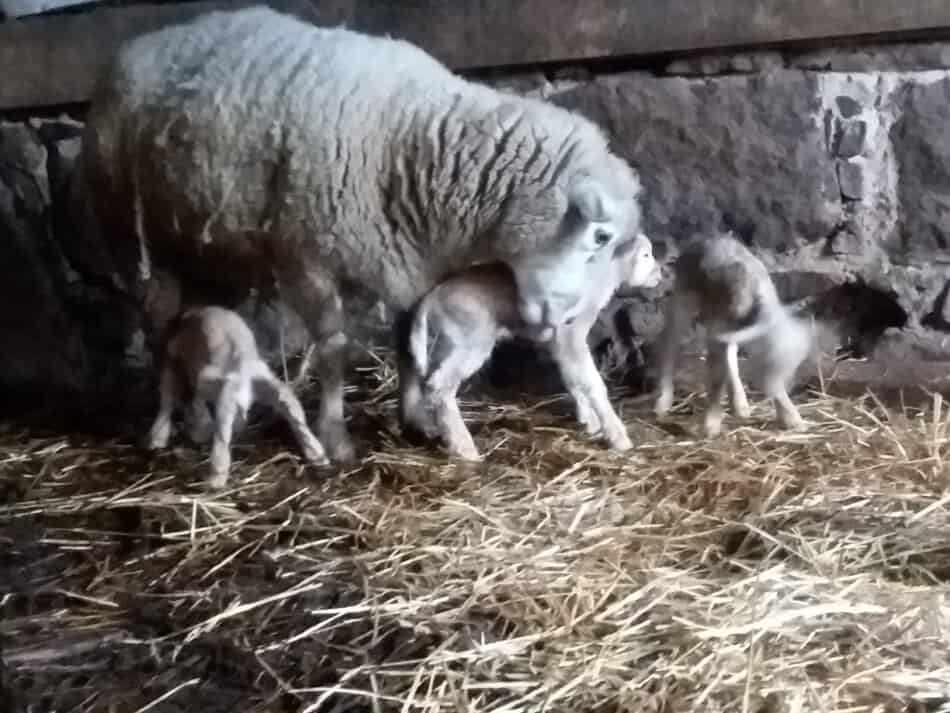
Sometimes sheep will steal the lambs from other sheep. Why? What is that ewe (mom sheep) doing with another ewe’s babies?
Ewes have a powerful instinct to take care of their lambs. Sometimes that instinct is very strong before the birth of her own lambs, so she steals the lambs from other ewes so she can have lambs to take care of.
Stealing lambs can happen in multiple situations, here are three of the most common ways we have seen that a ewe can end up with lambs that are not hers.
We’ll also go over why stealing is a bigger problem for the stolen lambs than it may appear to be, at first glance.
Looking to get started with sheep? Friendliest Breeds Of Sheep is where I list off my top choices for easy to get along with sheep choices for the first time shepherd.
Ewes steal other lambs before their lambs are born
Sometimes a ewe that has not given birth yet, takes the lambs that belong to a different ewe and walks off with the lambs. She make take just one, if the lambs are twins, or she may try to steal both lambs from their biological mom.
Whether or not a ewe gets her lambs stolen depends upon how much of a nuisance the would be stealer is willing to be and how protective the biological mom is of her lambs.
If the biological mom is unconcerned about the location of her lambs, she is an easy target to get her lambs stolen.
Lambing Time Supply List shows our must have items for lambing season, why we need them and think you should use them, too!
Why did she take the lambs that are not hers?
The ewe that steals is soon to have lambs of her own, so she is sure that her lambs are here somewhere! After a little bit of looking around she finds “her” lambs. But her lambs are not born yet, she’s just stealing!
The instinct of a ewe to find and take care of new lambs is so strong, she’s even looking for lambs before her lambs are born. If the “real mom” of those lambs is less concerned with them than the stealer, those lambs are walking off.
Usually, the stealing ewe is just a few hours ahead of herself, her lambs will show up soon.
What’s the big deal anyway, won’t those lambs still have a mom?
So, maybe you are thinking “what’s the big deal, does it really matter that those lambs have a different mom?” Acutally, if the stealer would continue to care for those lambs, it would be fine, but chances are she won’t.
As soon as she gives birth, the ewe will be able to tell that her biological lambs smell differently than the stolen lambs and she’ll head butt away the stolen lambs, leaving them lost and without a mom. This is a big problem.
Once the stealing ewe knows that the stolen babies are not hers, those lambs are without protection or care, unless the shepherd finds them and gets this all sorted out.
This is the true danger of stolen lambs, it’s not that they are stolen, it’s that they are abandoned once the ewe has her own babies and can tell the difference between the stolen lambs and her biological lambs.
If, by chance, the stolen lambs would continue to be cared for by the non biological mom, another challenge comes up, how does she feed all those babies? Ewes are built to take care of one or two lambs, not four!
Even if she wants to take care of the stolen lambs, she does not have the milk or the udder space, since there are only two teats, there are only two spots to nurse at a time.
Chances are good, one or two of those lambs needs to be taken by the shepherd to be a bottle baby, leaving the mom with the lambs she can handle.
Lambs born in a small area at the same time smell the same
Another way that ewes steal lambs is when two (or more!) ewes give birth very close to one another at nearly the same time. As the lambs are born, they end up in the same puddle of birth fluids, which confuses the ewes.
The reason this is confusing to the ewes is that the ewe will identify her baby by smell, and since all the smells just mixed together, this is very confusing for both ewes.
At this point the lambs do not know which mom is their mom, so as soon as the lambs can stand they are knocking around on anybody looking for an udder. The ewes or the shepherd will have to sort this one out!
Once again, the danger here is that the ewe will take care of the wrong baby for a little while, then decide that non biological baby is not hers and now you have a rejected lamb.
The ewe might raise the non biological lamb
If you are a commercial producer and all you want is a well raised lamb, then having a mix up at birth and the ewes raising a non biological lamb does not matter.
However, the potential problem with this sort of a mix up is if you are registering sheep or at the very least trying to keep good flock records, now you have inaccurate records.
This sort of a mix up would be accidental, but still gets recorded and managed as if it were the accurate results of this ewe, which can lead to poor decision making, especially if the shepherd is using records to keep back breeding stock.
Lambs can follow the wrong ewe
Occasionally, lambs will follow the wrong ewe.
A third way that lambs can get stolen by ewes is really not stealing at all, it’s just the lambs looking for a mom and going off with the wrong one!
Lambs instinctively know that they need to find mom, but what happens when they wake up from a nice nap and mom is “gone”? Sort of like how your kiddo gets “lost” in the grocery store, it’s the same thing.
If the lamb looks around and takes off to follow the next ewe that walks by, that lamb is going to end up with the wrong mom.
If the lamb would call for the ewe, she will find it, but if the lamb just walk, it can silently get out of his mom’s immediate area without here noticing.
To be clear, an all star ewe is not going to let any of these things happen to her babies, but not all ewes are all star moms. The below average moms are the ones that have misplaced lambs that need sorted out by the shepherd.
If you are wanting more of technical explanation, read Behavioral Problems of Sheep-Lamb Stealing in the Merck Manual.
